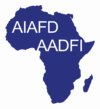It is the desire of most investors to maximize return on investment especially at times when the dynamics in the business operating environment are changing at the tick of the chronometer per minute.
It is, however time for financial institutions to broaden their perspective and consider more than just profits, capital gains, and industry growth rates. This is the business model that the Kenya Development Corporation desires for partners in investment space.
Sustainable investment now demands a balanced approach, one that not only meets current financial objectives but also safeguards the future.
It requires an investment in due diligence process that evaluates not just the economic viability of opportunities but also the impact on people, culture, the environment, and ethical standards.
Human rights form the foundation of any thriving society. Investors and financiers must prioritize policies that uphold the dignity, rights, and well-being of individuals.
A robust due diligence process should evaluate working conditions, fair wages, non-discrimination, and compliance with labor laws such as Occupational Health and Safety (OSHA) standards.
By focusing on the welfare of people, institutions can build a productive workforce and cultivate long-term relationships with customers and stakeholders.
Institutions that prioritize people not only create and retain productive human capital but also create a reliable team of customers and brand ambassadors who translate to referral business.
As the old Kiswahili adage goes “Muacha mila ni Mtumwa” cultural heritage and diversity are vital to the development of individuals and communities alike.
It would amount to an act of discrimination if the cultural model of an individual or a group of people is disregarded for financial gain.
An investor should, therefore not cheer nor finance an activity that infiltrate, disregard or dilute cultural spectrum, provided the cultural spectrum is within the constitution of the business jurisdiction.
However, there are significant opportunities in promoting cultural diversity, culture promotion events, preservation and restoration of cultural sites and documentation of cultural beliefs, history and customs.
The due diligence process must consequently review the impact to culture on both positive and negative impact for a balanced investment.
“The generation that destroys the environment is not the generation that pays the price.” These words from the late Nobel Laureate Prof Wangari Maathai, remind us of the profound consequences of environmental degradation.
Investors must acknowledge the long-term consequences of environmental degradation.
Financial institutions, therefore, should incorporate environmental considerations into their due diligence processes, focusing on waste management, biodiversity conservation, carbon reduction, and sustainable resource use.
By supporting climate-smart investments, institutions contribute to a healthier planet and secure a sustainable future.
Ethical conduct is another cornerstone of sustainable business. No investment should be linked to unethical practices.
In today’s transparent world, reputational risks can have long-term negative effects on businesses and investors.
Investments should be guided by stringent ethical standards, ensuring that they comply with anti-corruption laws, food safety regulations, and industry-specific best practices.
Moreover, investors should enforce Chapter Six of Kenya’s Constitution, which emphasizes leadership and integrity in both public and private sectors.
This commitment to ethics strengthens trust and credibility, which are critical to sustained growth.
The Kenya Development Corporation (KDC) is committed to forging a robust and sustainable investment ecosystem by promoting this balance between financial return, respect for people and culture, environmental stewardship, and ethical conduct, .
This approach ensures that our investments not only achieve short-term financial gains but also contribute to a sustainable and equitable future, benefiting both current and future generations.
By integrating these critical dimensions, KDC aims to cultivate a strong foundation that supports long-term prosperity and resilience and sustainable growth.
Mr. Herman Gacugi, is a Manager, Risk Management and Compliance at the Kenya Development Corporation(KDC)
